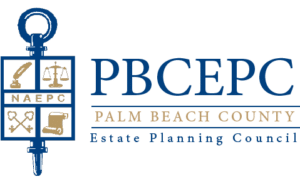
In many instances of estate planning, individuals and families choose to incorporate a trust in their design. The motivation behind that decision is unique to each grantor, but the end product can leave beneficiaries with a number of questions, particularly from those with little-to-no experience with living with the support of a trust. We’ve compiled several common questions we’ve heard from beneficiaries inheriting money from their parents and asked our team of trust professionals to provide some guidance that can be used during these conversations on the workings of irrevocable trusts.
Question – So, did I inherit my parents’ money or not?
Answer – With an irrevocable trust, typically the beneficiaries receive the income produced from the trust, or some other form of periodic (i.e., monthly) fixed distributions. So effectively, your parents have left you with having the opportunity to use your inheritance without necessarily giving it to you outright.
Q – Why can’t I just have all of it now? It’s my money!
A – Your parents wanted to leave you with a legacy that can work for you and your heirs. A trust allows the assets to remain protected and still provide a relative cash flow designed to make life just a little bit easier for an extended period of time. Most trusts are designed with flexible provisions to allow for special distributions to occur in the event a beneficiary needs access to funds under certain circumstances. Generally, these include educational expenses, healthcare or maintenance/support.
Q – Why do I need a trustee?
A – All trusts require a trustee, and it is the trustee’s responsibility to ensure that the grantor’s wishes are carried out and to act as the general fiduciary over the assets. Trustees are held to high standards of duty in carrying out their responsibilities to the trust. Among the items that fall under the responsibilities of a trustee are preparation of income tax returns for the trust, distributions to beneficiaries, principal and income accounting, and management of the underlying assets of the trust.
Q – Do I have to pay for a trustee?
A – Generally speaking, trustees are entitled to reasonable compensation to perform their duties. This is true for corporate trustees as well as individuals who may have been named as trustees. Fees vary among trust companies but are usually based on a percentage of the value of the underlying assets titled in the name of the trust. These fees are normally paid from trust assets, there is typically no direct out-of-pocket expense paid by the beneficiary.
Q – What are my rights as a beneficiary and what part do I play in decisions regarding the trust?
A – As a beneficiary, you retain a number of rights which are important to recognize. You have a right to regular and special accountings to be provided by the trustee. Additionally, you have the right to monitor the activity of the trustee. In cases where there is a legitimate reason to believe that the trustee hasn’t been fulfilling its duties, the beneficiary has the right to pursue relief using various alternatives, including provisions of the Florida Trust Code. Additional specific rights are generally outlined in the trust document.
Q – My grandparents created this trust for my benefit and it seems antiquated and outdated. Can the trust be modified to be more reflective of how things are today?
A – Generally speaking, an irrevocable trust is designed to be relatively rigid in its terms and conditions. But under the right circumstances, certain modifications can be entertained. Many times, we see this with older, more established trusts. With a coordinated effort among the trustee, beneficiary, and remaindermen, a trust can undergo a “repackaging” of sorts. There are a few ways to approach this, depending on the objectives:
- Exercise general powers under the trust – This would be the first step. Look to identify any specific language in the trust that would empower a trustee or beneficiary to make modifications.
- Non-Judicial Modification – Another (relatively) easy approach is to look at a non-judicial modification/agreement. These are effective when all interested parties (trustee, beneficiaries and remaindermen) all agree on making an allowable modification under the Florida Trust Code.
- Judicial Modification – This would be necessary when all parties don’t agree on the modification or perhaps the trust itself does not qualify for a non-judicial settlement.
Regardless of the approach, the modification will need to remain consistent with the spirit and intent of the original trust. Any approach to modification will require the engagement of a qualified attorney. We encourage any party interested in exploring the modification of a trust to first seek advice from their legal specialists.
Trust and Portfolio Management services offered by Cypress Bank & Trust are not insured by the FDIC; are not deposits, are not guaranteed; and are subject to investment risks, including possible loss.
Elizabeth Wagner, Senior Trust Officer and Vice President, has over 40 years of experience in banking, trust, and investments. Elizabeth currently serves as the Chair of Cypress’ New Account Committee. She is a graduate of Towson University, the Florida School of Banking, and the Florida Graduate Trust School.
